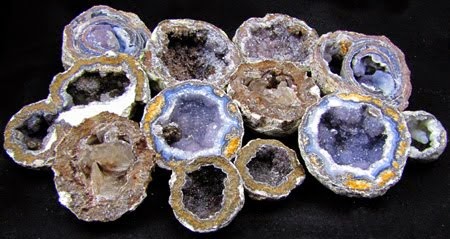Now that's a tease of a headline!
Yet it's what I heard in the hallway--one of those moments when people don't think they are being overheard.
A student was complaining about the movie, A Wrinkle in Time. That's the movie for which I offered extra credit if students went to see it a few weeks ago.
I had a purpose for the movie viewing beyond the mathematical angle (I am a math teacher, for those who don't know me.) I wanted students exposed to the interpretation of a well-known and much-loved story by an African-American female director and to see an African-American female in the lead role as well as supporting roles.
I wanted students to see a fresh and different perspective on the story and wondered if that would challenge their assumptions.
I promoted my offer with a movie poster prominently displayed on my hall bulletin board.
"The movie was terrible. [I am paraphrasing.] In the book, the witches were white. They had a black witch. She was a bad actor. They ruined the story ..."
The student's friend, to whom she was complaining, shushed her. He was trying to tell her to be quiet--don't let her race-based complaint be heard lest it bring trouble.
Unknown even to her, the student's complaint was race-based. She didn't like the fact that there were black actors playing roles that she imagined were white characters when she read the book.
In a way, I rattled her worldview and that is part of the job of a teacher: make kids think more deeply about what beliefs they have absorbed from their subculture. In another way, it shows the challenge we have in building a better society.
The witches were white. I too have read the book and no, Madeleine L'Engle never specified a race for the witches. It is the privilege of the dominant race of a society that everyone, including the minority members, will assume that the characters of a book are from the race of the dominant race of the society.
Even if the book had said the witches were white but someone had a new vision and changed that attribute, why would someone complain?
People, we have work to do.
After my first year at my current school, my principal gave me a 'needs improvement' rating in one area: knowing the background of my students. That really surprised me because of all the teachers at my school, I am one of the few, a very few, who thinks about my students, who they are, and how their personal histories play into the dynamics of the classroom.
It took me a long time to figure out that what he meant was that I was not using data (test data.) Actually, I was but he didn't know. When I showed him the research I did on my students, the rating changed for the next year.
I brought it up in my annual review meeting the following year: how it took me a while to figure out what he meant, that I was one of the most culturally aware ('woke' in the current linguistic coin) of his teachers. He replied that he did not think there was a problem regarding the interactions between white people and black people at the school.
For the record, my principal is black.
But we do have a problem, the same problem of all America, that when white and black people interact, the racial history of our country plays a role in how we hear and understand one another.
(Please do not try to figure out what school I teach at and who is who. I am trying to address a larger issue.)
In my school system, in my county, in my state, a southern state with a complicated and difficult history of race relations, we don't want to address this. We would rather pretend that the color of the skin doesn't matter; we treat everyone the same. Nothing more needed.
Except we hear the whispers in the hall: the witches were white.
It's time to stop the pretense. It's time to stop avoiding the painful conversations that must take place if we want to move forward and establish a more just society.
The witches aren't white. They are only what you imagine them to be.

No comments:
Post a Comment